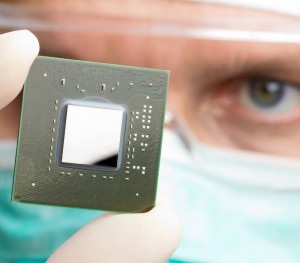 It’s nice to start 2016 with some good tax news. Right before 2015 ended, the US Congress passed a significant bill that seeks to help American taxpayers keep their money and grow our economy. Last December, Congress passed a bill, referred to as “Protecting Americans from Tax Hikes Act of 2015” (PATH). For many years, there have been essential tax credits and benefits that expired every year with no certainty of extension. With PATH, that uncertainty goes away as it permanently extends more than 20 tax relief provisions.
It’s nice to start 2016 with some good tax news. Right before 2015 ended, the US Congress passed a significant bill that seeks to help American taxpayers keep their money and grow our economy. Last December, Congress passed a bill, referred to as “Protecting Americans from Tax Hikes Act of 2015” (PATH). For many years, there have been essential tax credits and benefits that expired every year with no certainty of extension. With PATH, that uncertainty goes away as it permanently extends more than 20 tax relief provisions.
The bill includes provisions for individuals, families, and businesses. A major provision that we want to focus on is the extension and modification of the R&D credit which is stated in section 121 of the bill. To see the entire bill, click here.
The provision permanently extends the research and development (R&D) tax credit. For years, the R&D credit had to be renewed by Congress annually (and some years wasn’t at all). This led to much frustration for companies who didn’t know if they could count on those benefits from year to year. Incentive programs are supposed to be designed to help companies (and taxing jurisdictions) plan for and perhaps smooth out tax liabilities. After all, research and development is a key component in the life of technology companies. In fact, companies sometimes weigh the costs of keeping R&D here in the US (versus transferring it offshore) because of the volatility of the credit annually.
As an additional benefit, beginning in 2016 eligible small businesses ($50 million or less in gross receipts) may claim the credit against alternative minimum tax (AMT) liability, and the credit can be utilized by certain small businesses (see below) against the employer’s payroll tax (i.e., FICA) liability.
Why is that a good news?
The purpose of this provision is to encourage growth and innovation. In prior years, many small businesses and startups were not able to take advantage of this tax credit. Small businesses, especially start-ups in their infancy do not make profit (or net taxable income). However, even with net operating losses (and no tax liability), these startups are still required to pay payroll taxes. With the expansion of the R&D credit, these small businesses will benefit from the credit and receive tax relief. Startups (businesses with gross receipts for a taxable year less than $5 million) are able to take the credit against payroll taxes of up to $250,000 per taxable year.
So why do we in the multi-state world care?
Well, we like tax credits & incentives in general! Many states already have R&D tax credits which are very similar to the Federal Credit. Some, like California, made the R&D credit permanent years ago – a testament to the state’s technology industry. Perhaps with the increased benefits for small businesses at the federal level, states will follow suit and offer similar benefits.
As always, Stay tuned for updates on other tax credits and incentives – both at the federal level and with the states. (See our monthly state of the month blog for state specific tax credits & incentives.)



















